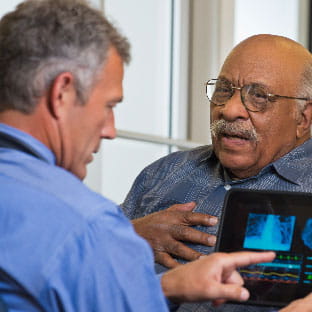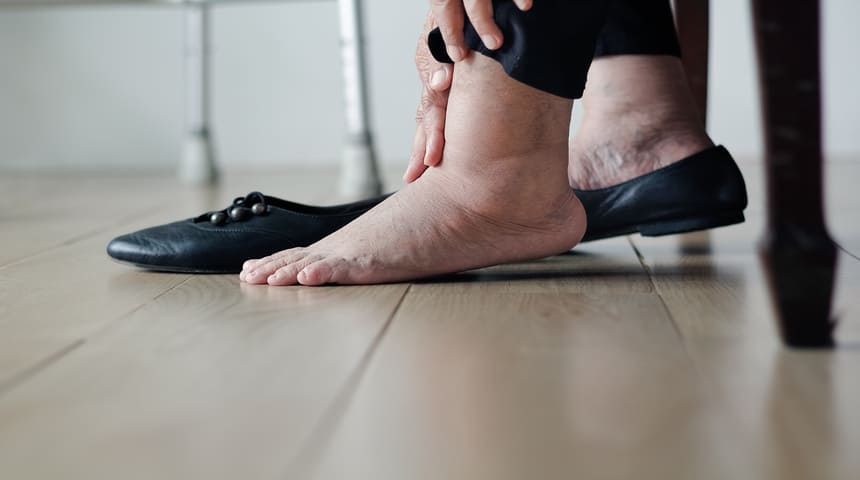Orlando Health Heart & Vascular Institute Specialties
Our team of experts specializes in more than 40 heart and vascular areas. We offer comprehensive care, including wellness, imaging and rehabilitation services, as well as minor and complex surgery. You can find all the care you need at the Orlando Health Heart & Vascular Institute.

Advanced Cardiac Imaging
Advanced Cardiac Imaging
The advanced cardiac imaging team at Orlando Health Heart & Vascular Institute uses advanced technology to diagnose and treat cardiac disease.
Learn More
Advanced Cardiac And Thoracic Surgery
Advanced Cardiac And Thoracic Surgery
Our highly trained surgical experts perform the most complex surgical procedures, including minimally invasive surgery, coronary bypass, valve repair and replacement, and aneurysm repair.
Learn More
Advanced Heart Failure
Advanced Heart Failure
The advanced heart failure team at Orlando Health Heart & Vascular Institute provides award-winning care.
Learn More
Atrial Fibrillation
Atrial Fibrillation
The Atrial Fibrillation (AFib) Program team at Orlando Health Heart & Vascular Institute provides award-winning care.
Learn More
Cardiac Rehabilitation
Cardiac Rehabilitation
Our rehabilitation specialists can help you recover and improve your strength after a cardiac event, as well as manage your condition.
Read More
Congenital Heart Disease
Congenital Heart Disease
Our multidisciplinary team will work closely with you to develop a lifelong treatment plan to help you manage congenital heart disease and any related conditions.
Learn More
Critical Limb Ischemia
Critical Limb Ischemia
If you have ischemia (severe blockage) in the arteries of your legs, we can treat symptoms and control risk factors to try and prevent a life-saving amputation.
Learn More
Electrophysiology and Arrhythmia Program
Electrophysiology and Arrhythmia Program
Our team of award-winning specialists can diagnose your arrhythmia (irregular heartbeat) and recommend a personalized treatment plan.
Learn More
Heart Attack Program
Heart Attack Program
The Orlando Health network of hospitals have created a regional heart attack response team, STEMI (ST-Segment Elevation Myocardial Infarction) program.
Learn More
Heart Valve and Structural Heart Center
Heart Valve and Structural Heart Center
We provide leading-edge heart care for valve disease, from diagnosis and treatment through recovery and follow-up care.
Learn More
Interventional Cardiology
Interventional Cardiology
Our interventional cardiologists have advanced training in cardiovascular disease and provide life-saving procedures in our state-of-the-art cardiac catheterization labs.
Learn More
Pediatric Cardiology and Cardiac Surgery
Pediatric Cardiology and Cardiac Surgery
The Heart Center brings together a select group of specialists to offer extensive expertise in the diagnosis and treatment of infants and children with heart disease.
Learn More
Peripheral Vascular
Peripheral Vascular
Our specialists work with you to stop your peripheral vascular disease from progressing, improve symptoms and increase your quality of life.
Learn More
Pregnancy and Heart Disease
Pregnancy and Heart Disease
Providing specialized care for pregnant women with heart disease.
Learn More
Sports Cardiology
Sports Cardiology
Our experts understand the stress an athlete can put on a heart. We can help athletes with known heart issues or athletes just learning of an existing heart problem.
Learn More
Vascular Surgery
Vascular Surgery
Our team believes that to treat vascular disease, we need to treat you, not just your vascular condition. We specialize in minimally invasive and endovascular surgery.
Learn MoreHeart & Vascular Content Hub
Choose to Stay in Touch
Sign up to receive the latest health news and trends, wellness & prevention tips, and much more from Orlando Health.





